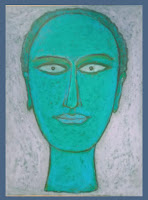All that intelligence is an openness of being, it is the ability to observe without bias, to listen without interruption, and to be with things without preconceived notions about them. Being open-minded is a sign of intelligence. It differs so completely from intellectuality because of this. Simply said, intellectuality is the antithesis of intelligence. An intellectual is someone who is always carrying information, knowledge, and preconceived notions. He can't listen; he's already made up his mind before you say anything.
Anything you say has to make its way through so many different ideas in his head that by the time it gets to him, it has changed completely. He experiences extreme distortion, becoming very walled off and nearly deaf and blind. Everyone who is knowledgeable and an expert is blind.
This old tale was being told to the young boys and girls by their instructor. "Can you tell me who the people were who went to see the elephant and then started quarrelling?" the mother questioned a small kid after telling him the entire story. When she was telling the story to the boy, she wanted to know if he had paid attention. "Yeah, I know," the child answered as he got to his feet. They were the knowledgeable ones." She assumed he would say something like, "They were five blind people." However, the young child remarked, "Those were the experts." Yes, they were experts; he couldn't be more correct.
Experts
are all blind. When you become an expert, you lose sight of everything else.
You eventually reach the aim of knowing everything about nothing by learning
more and more about ever decreasing amounts of subjects. You have become
windowless at that point, when every single one of your windows is closed and
entirely closed.
This
lacks intelligence.
Being open to the sun, wind, and rain is what it means to be intelligent. Intelligence is the ability to let go of the past, to die to the past every moment, and to stay young and naïve.
However,
no one is prepared to hear what the other has to say. Ever paid attention to
what the other person was saying? You conclude before you even say another
word. You are no longer fluid; your conclusions have solidified.
To stay
liquid is to be intelligent; to become frozen is to become stupid. The flow of
intelligence is constant, like a river. An unintelligent person is like an ice
cube. Since intelligibility is frozen, it is constant. It is unquestionable and
certain. Though it flows, intelligence is not constant.
It has no definition; it just moves in response to circumstances. Though inconsistent, it is responsible. People who are consistent are only the foolish ones. You will be more erratic the smarter you are since you never know what the future holds. There will be new adventures tomorrow. What can you do to maintain consistency with yesterdays? You'll be perfectly consistent if you're dead.
You must be inconsistent to be alive because you have evolved, the environment has changed, and the river is now flowing into new areas. The river is flowing through a forest now, whereas it was flowing through a desert yesterday. You shouldn't live by the experiences of yesterday; else, you would have passed away yesterday. With time, one ought to be able to continue moving. One should never turn into a thing; one should always be a process. That's intelligence.
Picture Courtesy: Photographs used in this blog are paintings by Rudradev Sen.











